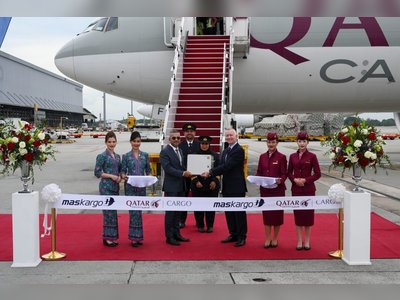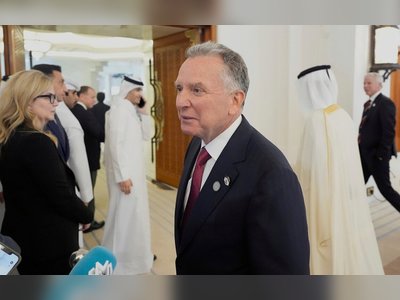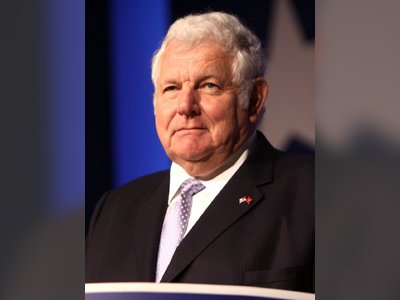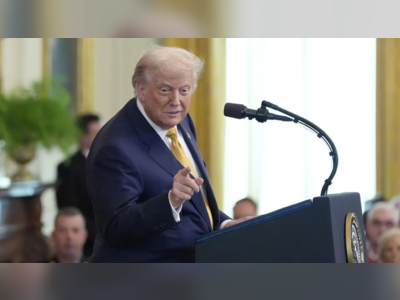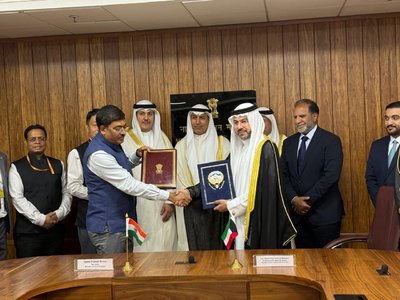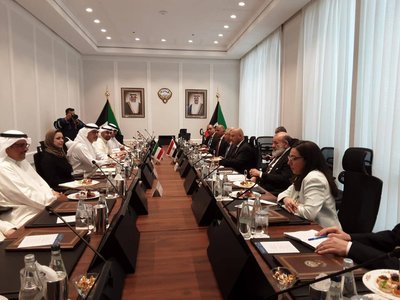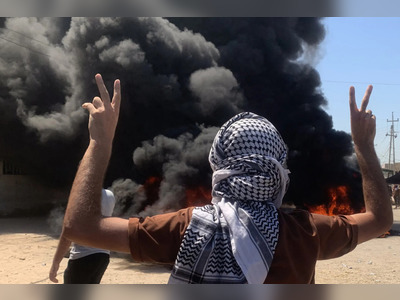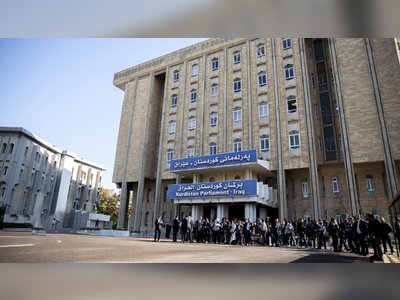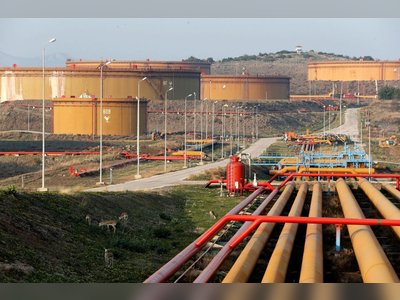
US Envoy Urges Syria's Sharaa to Revise Policies or Risk Fragmentation
US envoy Thomas Barrack advises Syrian President Ahmed Al-Sharaa to adopt a more inclusive approach amid ongoing sectarian violence.
BEIRUT: A US envoy has urged Syrian President Ahmed Al-Sharaa to recalibrate his policies and embrace a more inclusive approach after a new round of sectarian bloodshed last week, or risk losing international support and fragmenting the country.
US envoy to Syria Thomas Barrack said he had advised Sharaa in private discussions to revisit elements of the pre-war army structure, scale back Islamist indoctrination, and seek regional security assistance.
Without swift change, Sharaa risks losing the momentum that once propelled him to power, according to Barrack.Sharaa, leader of a former Al-Qaeda offshoot, came to power in Syria after fighters he led brought down President Bashar Assad in December last year after more than 13 years of civil war.
Though his own fighters have roots in Sunni Muslim militancy, Sharaa has promised to protect members of Syria's many sectarian minorities.
However, this pledge has been challenged by mass killings of Alawite sect members in March and recent violence in the southwest.Hundreds of people have been reported killed in clashes in the southern province of Sweida between Druze fighters, Sunni Bedouin tribes, and Sharaa's own forces.
Israel intervened with airstrikes to prevent what it said was a mass killing of Druze by government forces.
Barrack suggested that Daesh group militants may have disguised themselves in government uniforms, and that social media videos are easily doctored and unreliable.The US helped broker a ceasefire last week that brought an end to the fighting, which erupted between Bedouin tribal fighters and Druze factions on July 13.
The stakes in Syria are dangerously high, with no succession plan or viable alternative to the country's new government.
Barrack stated that if the Syrian regime fails, it could lead to dire scenarios similar to Libya and Afghanistan.The US has said it did not support Israel's airstrikes on Syria.
Barrack emphasized the need for dialogue between Israel and Syria's new Sunni leaders, suggesting that the US could play an 'honest intermediary' role in resolving any concerns.
He stated that Sharaa had signaled from the beginning of his rule that Israel was not his enemy and that he could normalize ties in due time.
The United States is not dictating what the political format of Syria should be, other than stability, unity, fairness, and inclusion.
US envoy to Syria Thomas Barrack said he had advised Sharaa in private discussions to revisit elements of the pre-war army structure, scale back Islamist indoctrination, and seek regional security assistance.
Without swift change, Sharaa risks losing the momentum that once propelled him to power, according to Barrack.Sharaa, leader of a former Al-Qaeda offshoot, came to power in Syria after fighters he led brought down President Bashar Assad in December last year after more than 13 years of civil war.
Though his own fighters have roots in Sunni Muslim militancy, Sharaa has promised to protect members of Syria's many sectarian minorities.
However, this pledge has been challenged by mass killings of Alawite sect members in March and recent violence in the southwest.Hundreds of people have been reported killed in clashes in the southern province of Sweida between Druze fighters, Sunni Bedouin tribes, and Sharaa's own forces.
Israel intervened with airstrikes to prevent what it said was a mass killing of Druze by government forces.
Barrack suggested that Daesh group militants may have disguised themselves in government uniforms, and that social media videos are easily doctored and unreliable.The US helped broker a ceasefire last week that brought an end to the fighting, which erupted between Bedouin tribal fighters and Druze factions on July 13.
The stakes in Syria are dangerously high, with no succession plan or viable alternative to the country's new government.
Barrack stated that if the Syrian regime fails, it could lead to dire scenarios similar to Libya and Afghanistan.The US has said it did not support Israel's airstrikes on Syria.
Barrack emphasized the need for dialogue between Israel and Syria's new Sunni leaders, suggesting that the US could play an 'honest intermediary' role in resolving any concerns.
He stated that Sharaa had signaled from the beginning of his rule that Israel was not his enemy and that he could normalize ties in due time.
The United States is not dictating what the political format of Syria should be, other than stability, unity, fairness, and inclusion.
